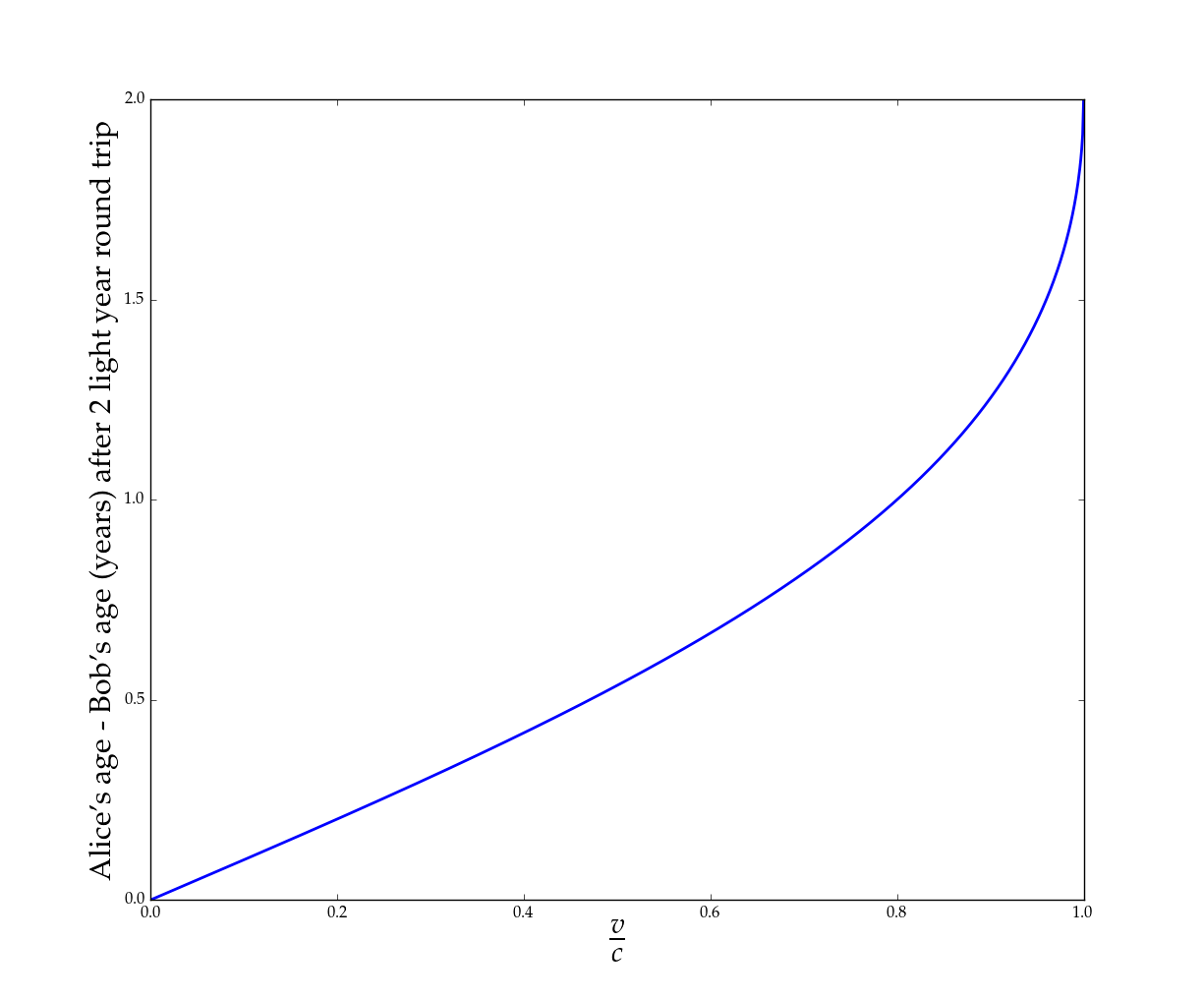Say Alice could instantly encode another human being, Bob, into photons.
Say Alice then beams those photons to a receiver on another planet, Vogon, one light year away. Charlie is controlling the receiver on Vogon and when Bob's photons arrive, he immediately sends the photons back to Earth. When they arrive Bob is reconstituted into flesh and bone.
Assume instant encoding and decoding times and that Charlie sent Bob's photons back the very instant they were received.
What are the timeframes observed to have passed for each of the participants?
Alice: 2 years would have passed?
Bob: No time would have passed?
Charlie: does it make sense to say anything about Charlie because he is in a different location?
If this is true, is there a continuum of effect (i.e. differing progression of time for Alice and Bob) as speed of propagation of Bob changes, and if so what is the relationship?
Edit: Assume the two planets are stationary with respect to one another.

